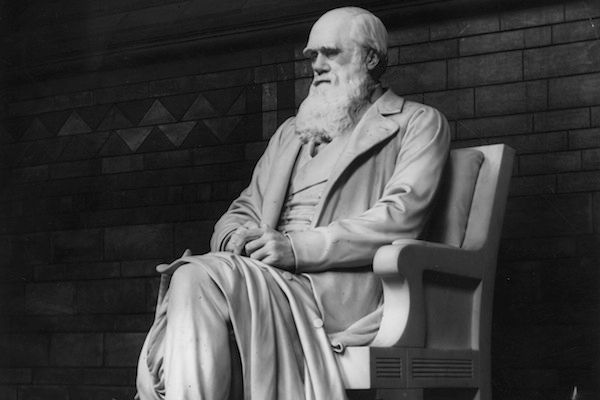An ardently left-wing friend of mine is travelling over from Thailand next week to look for a private school for his daughter. My email to him was short. It read ‘Charles Darwin 1, Karl Marx 0’.
Nobody among the sharp-elbowed middle class ever allows his political convictions to override the pursuit of a good education for his children. They will pay or move house or, if those two approaches fail, rapidly reawaken a long-dormant interest in Catholicism.
One reason for this inconsistency is explained in four words by the evolutionary theorist and sociobiologist E.O. Wilson, by common consent the world’s leading expert on ants. His simple observation on Marxism was ‘Beautiful theory. Wrong species.’
What Wilson explained is that among ants and some other insects, a kind of socialism can work: when you are infertile and closely interrelated to your cohort, the survival and propagation of your genetic code is served by subordinating your individual interests to the good of the colony. Humans aren’t like that. We are a social species of a different kind: co-operative and competitive at the same time (like two women in a kitchen). In The Righteous Mind, Jonathan Haidt memorably describes the human make-up as being 90 per cent chimp, 10 per cent bee.
You would think that this insight, combined with recent advances in other fields of evolutionary science and psychology, might influence public policy. It could help explain why higher inheritance tax, while desirable in many ways, is a political no-no. And it might cast light on why education may be a much tougher problem to solve than health: while we may want everyone else to be equally healthy (bee), we want our children to receive a better education than our neighbour’s children (chimp). If parents were more honest about their chimp heritage, they might also admit that, when choosing a school, they care less about the staff or the facilities (something government might solve) than about placing their children within an appropriate peer-group (something it can’t).
But you would be wrong if you thought these ideas had any traction in government. The problem is easily explained in anthropological terms. Most social scientists fall into one of two warring tribes. One seeks a genetic explanation for everything, another refuses to acknowledge a genetic explanation for anything. Or, as one Darwinian described the divide, ‘They think we’re Nazis and we think they’re idiots.’ While this fight goes on, a third group of social scientists, called economists, have gained a completely unwarranted influence in framing the debate and designing the solutions.
While Marx might have developed a theory for the wrong species, economists create models for a species that has never existed — an imaginary hyper-rational automaton whose behaviour is entirely unaffected by the behaviour of its fellows. It is palmistry for the numerate, and its spurious mathematical neatness holds government and business in thrall to a discipline with no predictive value for which no serious scientist or mathematician outside the field has any respect.
Yet strangely, in all fields of activity where politics does not intrude, the most extreme forms of Darwinism are allowed to thrive. Horse-racing and dog-breeding seem immune from criticism for their eugenic obsessions. And as for sports, well, most school sports teachers in my experience were somewhere beyond Josef Mengele on the genetic determinism scale: within five seconds of a sports master determining of your 11-year-old self that you lacked the physique, aptitude or inclination to excel at rugby, you could see him consigning you to his mental dustbin for the next seven years. If a maths teacher did this, they’d be fired.







Comments